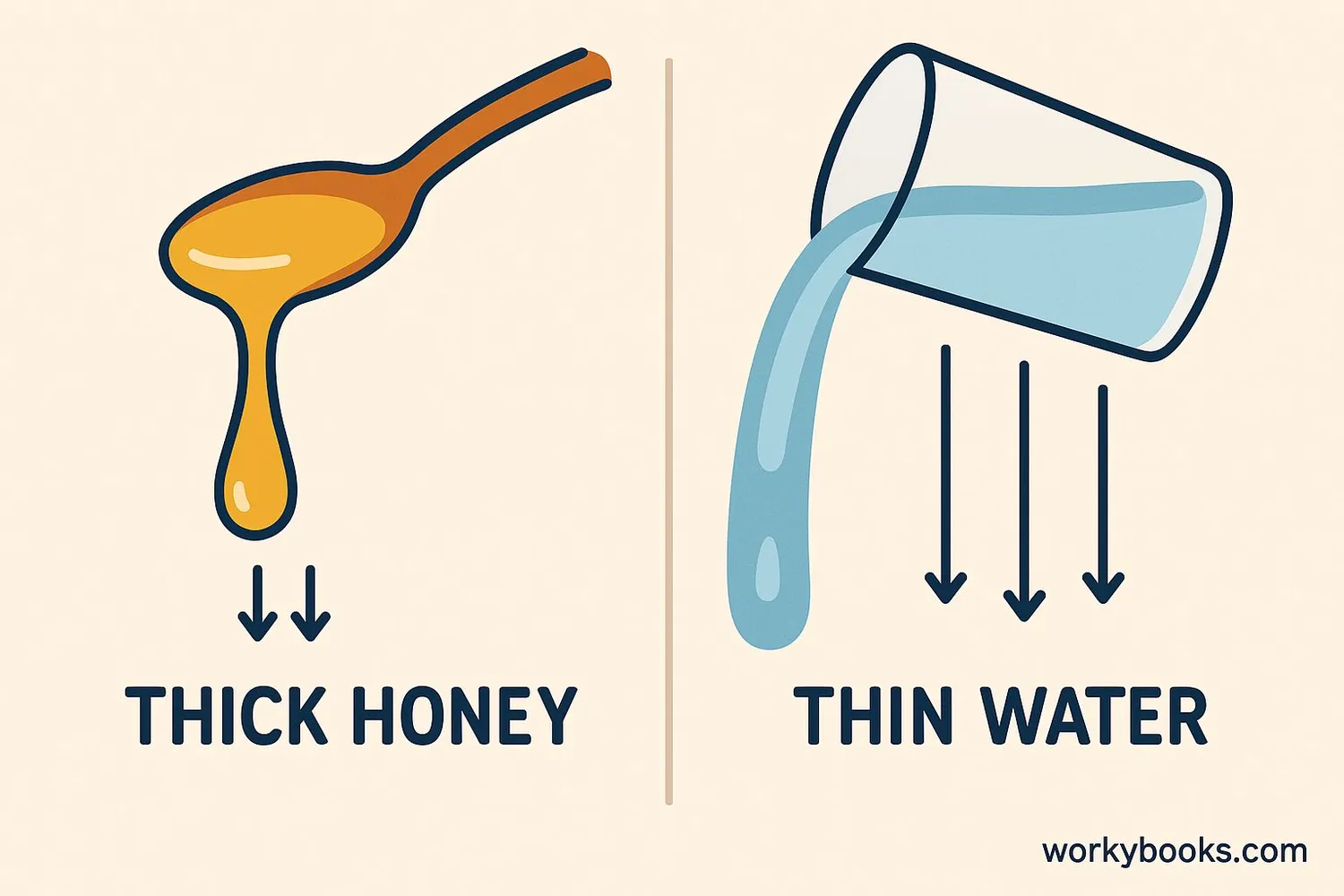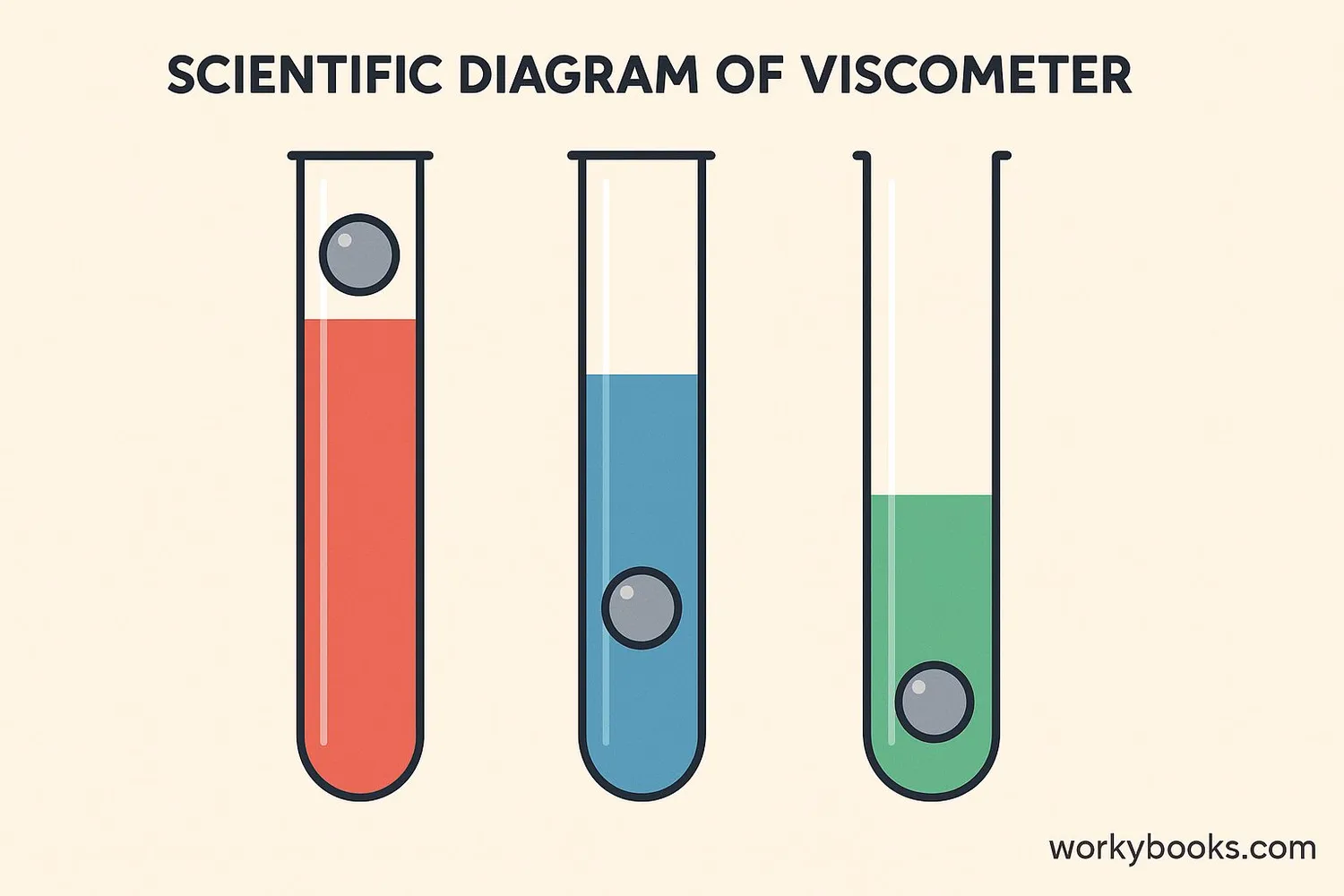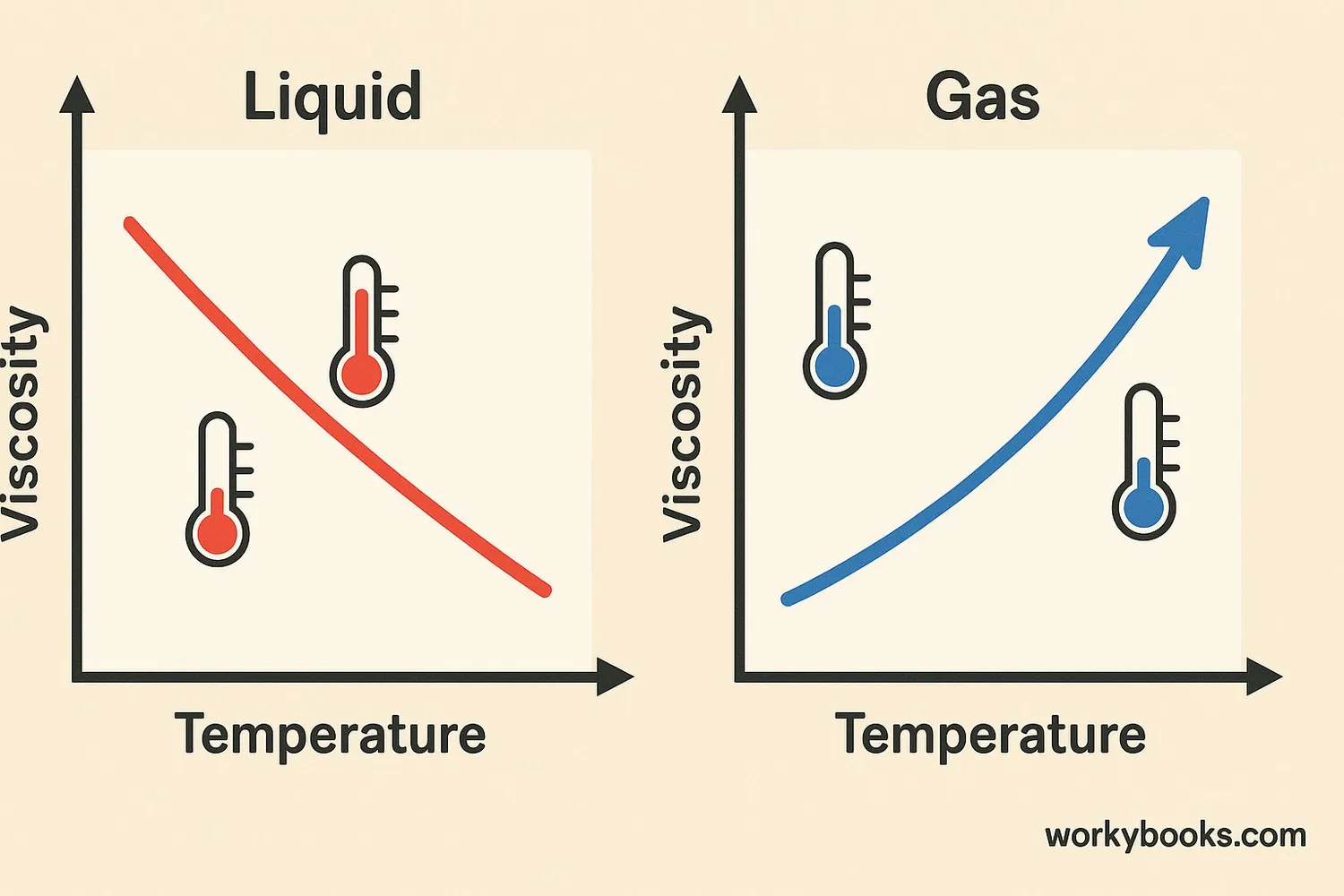Viscosity - Definition, Examples, Quiz, FAQ, Trivia
Discover how fluids flow and why some are thick while others are thin!
What is Viscosity?

Viscosity is a measure of a fluid's resistance to flow. Think of it as the thickness of a liquid.
High viscosity fluids are thick and flow slowly - like honey or ketchup.
Low viscosity fluids are thin and flow quickly - like water or juice.
All fluids have viscosity - even gases! But liquids are where we notice it most. Viscosity comes from friction between molecules - when molecules stick together, it creates resistance to flow.
Science Fact!
Viscosity is measured in units called Pascal-seconds (Pa·s) or Poiseuille (Pl). Water at 20°C has a viscosity of about 0.001 Pa·s.
Newtonian and Non-Newtonian Fluids

There are two main types of fluids based on how their viscosity behaves:
Newtonian Fluids
Viscosity remains constant regardless of force applied
Examples: Water, oil, alcohol
Non-Newtonian Fluids
Viscosity changes when force is applied
Examples: Ketchup, toothpaste, oobleck
Try This!
Make your own non-Newtonian fluid by mixing cornstarch and water (about 2:1 ratio). It will feel solid when you press it but liquid when you let go!
Measuring Viscosity

Scientists measure viscosity using special instruments called viscometers. There are different types:
Capillary Viscometer
Measures how long it takes for fluid to flow through a thin tube
Falling Sphere
Measures how fast a ball falls through the fluid
Rotational Viscometer
Measures torque needed to rotate a spindle in the fluid
The two main measurements are:
• Dynamic viscosity - resistance to flow
• Kinematic viscosity - how viscosity changes with density
Temperature Effects

Temperature has opposite effects on liquids and gases:
Liquids
Viscosity DECREASES as temperature increases
Example: Honey flows easier when warm
Gases
Viscosity INCREASES as temperature increases
Example: Hot air is "thicker" than cold air
Why the Difference?
In liquids, heat gives molecules more energy to overcome friction. In gases, heat makes molecules move faster and collide more, creating more friction.
Applications of Viscosity

Viscosity is important in many areas of our lives:
Automotive
Engine oils with proper viscosity reduce friction and protect engines
Coatings
Paint viscosity affects how easily it spreads and covers surfaces
Food Industry
Controls texture of sauces, dressings, and dairy products
Medical Applications
Blood viscosity is important for health. Doctors measure it to detect conditions like anemia or polycythemia.
Viscosity Quiz
Test your knowledge with this viscosity quiz! Answer all 5 questions to see how much you've learned.
Frequently Asked Questions
Here are answers to some common questions about viscosity:
Fun Viscosity Trivia
Discover some amazing facts about viscosity!
Nature's Slowest Flow
Pitch, a natural substance, has such high viscosity that it appears solid. In the famous pitch drop experiment that started in 1927, only 9 drops have fallen!
Super-Swimming Sharks
Shark skin has tiny ridges that reduce water viscosity effects, helping them swim faster with less energy. Engineers copied this design for swimsuits and boats!
Space Viscosity
In space, without gravity, viscosity becomes the main force controlling how liquids move. Astronauts study how fluids behave differently in microgravity.
World's Stickiest Substance
The most viscous natural substance is bitumen, with a viscosity about 230 billion times greater than water! It flows so slowly that it takes years to move a few centimeters.





